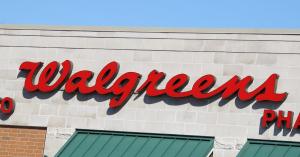Amazon announced last month that it is closing down most of its physical store locations, leaving employees without jobs and stripping those they support of some business as well. Amazon is of course best known for its e-commerce business, but in recent years its brick-and-mortar shops like Amazon Books, Amazon 4-Star and Amazon Pop-Up have become big businesses in certain areas. That will all end soon.
A spokesperson for Amazon told reporters from Reuters that the company is closing 68 stores in the coming months. Those locations are spread throughout the U.S. and U.K., and they will be closed permanently regardless of performance. Thankfully, the company will reportedly be offering different jobs within the company to the employees of those stores rather than just laying them all off. However, those who can’t find a suitable function within the global megalith may need to look elsewhere.
Videos by PopCulture.com
“We’ve decided to close our Amazon 4-Star, Books, and Pop Up stores, and focus more on our Amazon Fresh, Whole Foods Market, Amazon Go, and Amazon Style stores and our Just Walk Out technology,” the statement read. “We remain committed to building great, long-term physical retail experiences and technologies, and we’re working closely with our affected employees to help them find new roles within Amazon.”
Amazon launched in 1994, originally as an online book store only. It has grown into a general retailer with all kinds of goods and services on offer, but its brick-and-mortar Amazon Books shops harkened back to its roots starting in 2015. Ofcourse, many independent local bookstores took issue with this as they struggled to survive in the changing retail climate.
Many authors, readers and book store owners discussed the Amazon closures from this perspective throughout the week. Some congratulated their favorite local store for weathering the last seven years. Others speculated about what might be next for Amazon and how smaller retailers can prepare and adapt.
Based on Wednesday’s announcement, it sounds like Amazon is focusing its brick-and-mortar retail capacity on goods that are harder to ship and easier to shop for locally – particularly groceries. The company has opened one Amazon Fresh grocery store in the U.S. so far, and it reportedly plans to open 33 more this year and 580 more by the end of 2023. However, the company is already far behind on that goal.
The closure dates for physical Amazon stores vary by location, and each shop should have the details on it schedule available. Those interested in an Amazon alternative that supports local retailers can check out bookshop.org for more information.





